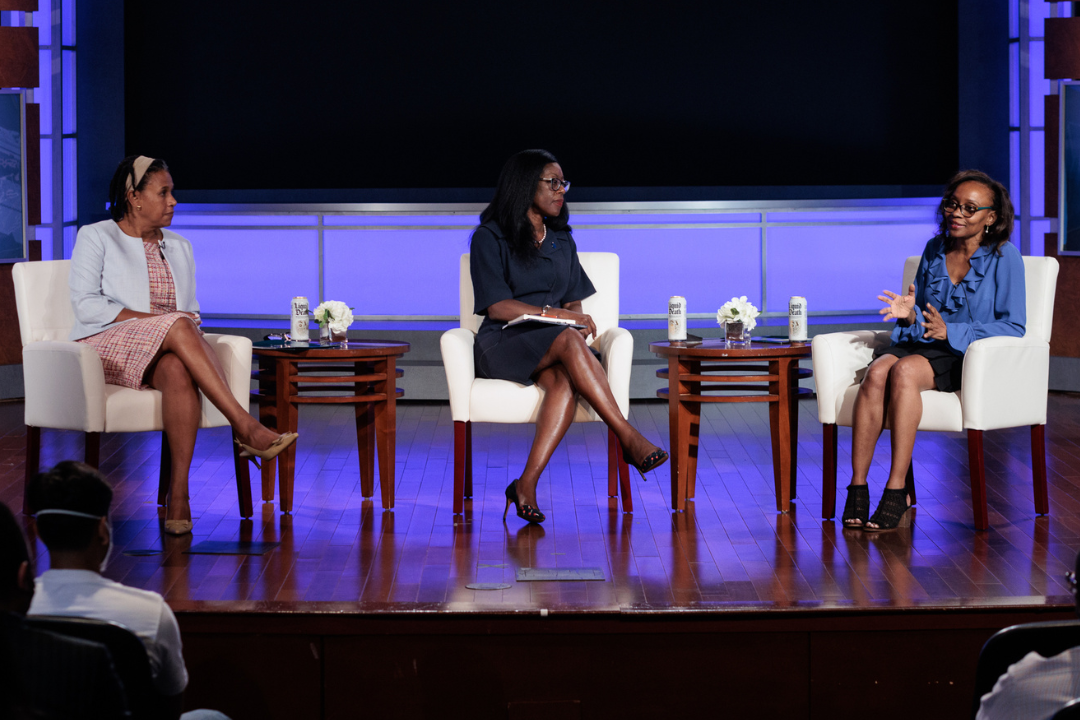"This [discussion] is an intentional part of this law school's vision of equipping our students to really shape solutions to some of the most pressing issues of our time," said Dayna Bowen Matthew, Dean and Harold H. Greene Professor of Law, while making opening remarks during the August 26 in-person discussion on Dr. Jennifer Eberhardt's book "Biased: Uncovering the Hidden Prejudice That Shapes What We See, Think and Do."
In alignment with GW Law's strategic plan and the American Bar Association's Standard 303(c), which mandates that all law students receive instruction in bias, cross cultural competency, and race, GW's Jack Morton Auditorium opened its doors to GW faculty, 1L students, and guests for a discussion on "how the law interacts with social science that helps [students] think of ways to take what is and make it what ought to be," said Dean Dayna Bowen Matthew as she addressed the crowd. Commenting on the effectiveness of assigning Biased and hosting her for a book talk in satisfaction of the new ABA Standard, Eberhardt commented on the importance of metrics and evaluation, "You don't get credit for the process, you get credit for the change in outcome."
Although there are several different forms of biases in her August 26 discussion, Dr. Eberhardt focused on racial bias.
"When the average person thinks of racial bias they think of burning crosses, they think of people who are filled with hate, they think of old-fashioned racism," Dr. Eberhardt said. "As social psychologists, we know you don't have to be an old-fashioned racist to be biased. Bias can be triggered and can have [a] devastating impact even when we're not aware of it, even when it's our intention to be fair, even when we are not filled with hate."
Dr. Eberhardt then demonstrated real-world examples of how racial disparities inspired bias, including her son and the company Nextdoor.
To close, Dr. Eberhardt points to a conversation she had with a South African man about apartheid that made her think about America's racial reckoning.
"The U.S. is in a racial reckoning everything is being reassessed, everything is being re-examined. There are new terms, there's new language to help people to see things that have been in front of them for their entire lives, but they were hard to see because we had no words for it," said Dr. Eberhardt. "That conversation so long ago is leading me to wonder, what else don't we see in our own society? What else do we accept without question? You know there's a difference between who we want to be and who are now. So let's shift the conversation we're having about race and inequality in this country so we don't slip back in time, so we continue to strive to see one another, so we continue to strive to see ourselves."
To watch Dr. Eberhardt's full remarks and discussion with Dean Dayna Bowen Matthew and Associate Dean for Justice, Equity, and Inclusion Carmia N. Caesar, click here. Please note: you must have an @law.gwu.edu email address to view this video.


